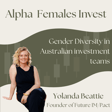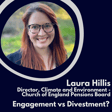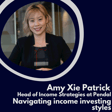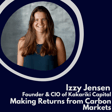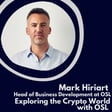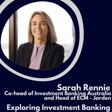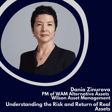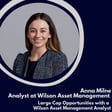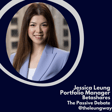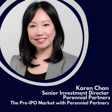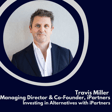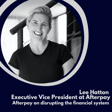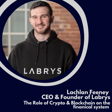
What is the PRI's influence on financial markets?
Join us as we interview David Atkin from the PRI to discuss it's influence on financial markets. Discover how the UN Principles for Responsible Investment (PRI) is transforming the financial landscape with over 5,000 signatories managing $121 trillion in assets, integrating environmental, social, and governance (ESG) factors into investment decisions.
Alpha Females Invest is a financial investing podcast. With a blend of unique perspectives from both buy and sell sides of the market, we delve into insightful conversations with industry experts from the Australian finance sector.
Whether you're a seasoned finance professional, a student of finance, or someone eyeing a career in the industry, our content is tailored to enrich your understanding and proficiency in navigating the financial landscape.
Each episode is a deep dive into a specific financial topic, spanning equities, debt, cryptocurrency, and the intricacies of investment banking.
Stay informed, stay empowered, and tune in to The Alpha Females Invest for your dose of financial listening.
We aim to promote gender diversity by having at least an equal representation of female and male guests on our show.
Disclaimer: The views expressed in this podcast are those of the speaker. The content in this episode is general in nature, and is for informational purposes only. It should not be construed as financial advice, it has not taken into account your personal financial position or objectives. Listeners are encouraged to seek professional guidance or conduct their own research before making any financial decisions. Please refer to a licensed adviser or tax agent and always read the relevant PDS for full product details. The views and opinions expressed on the podcast do not necessarily reflect those of Alpha Females Invest or its affiliates.
Our theme song and background music is courtesy of @tmykmusic.
Find out more here: https://alphafemalesinvest.com.au/
